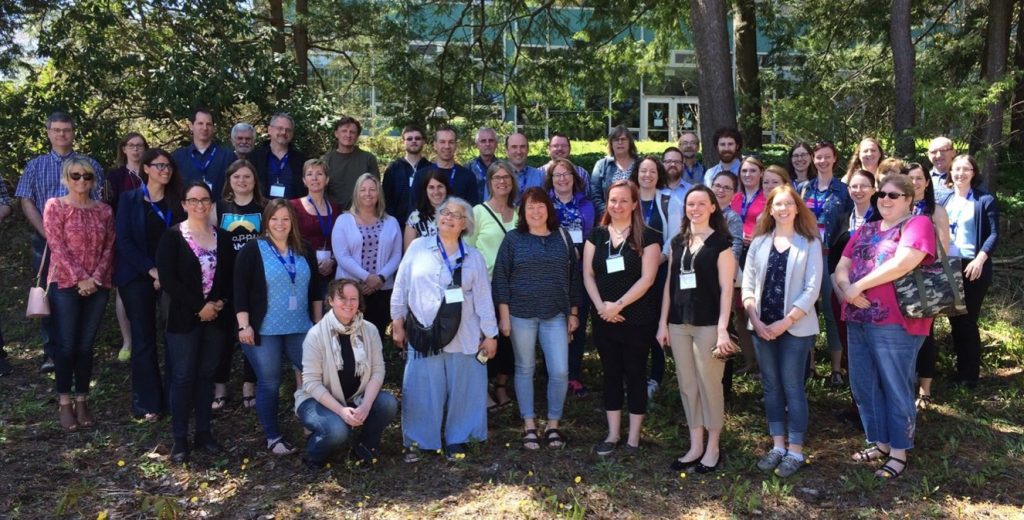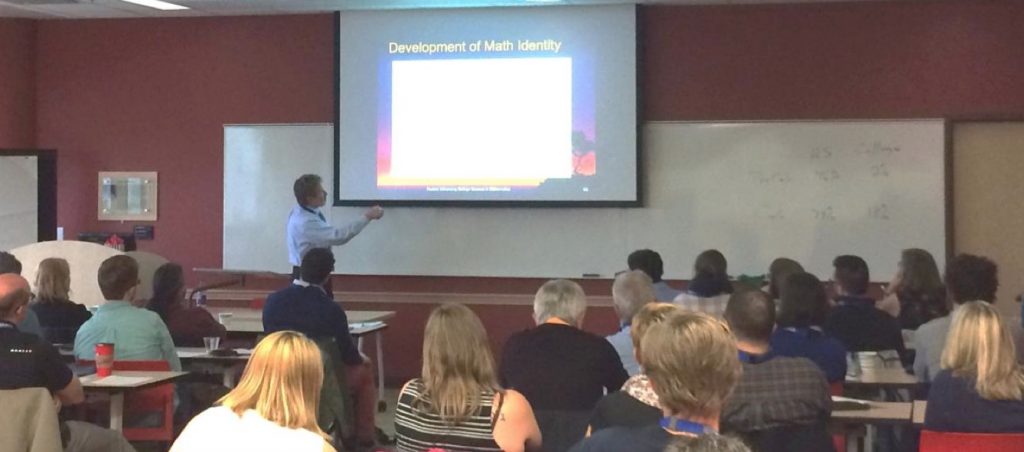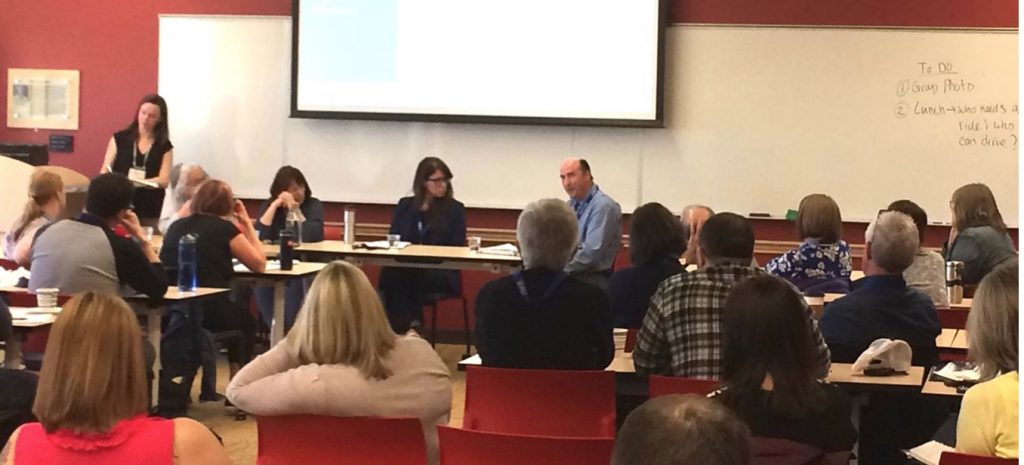On May 24-25, 2019 at Mount Saint Vincent University 59 high school teachers, university professors, instructors and graduate students from across Atlantic Canada attended the 2nd Annual Calculus Instruction in Atlantic Canada Conference. The focus of the conference was to discuss ways to assist students as they transition from high school to university mathematics.

The plenary speaker was Dr. Philip Sadler, F.W. Wright Senior Lecturer in the Department of Astronomy and Director, Science Education Department at the Harvard-Smithsonian Center for Astrophysics. His talk was titled The Transition from High School Mathematics to Introductory College Calculus: Factors Influencing Student Success. His engaging presentation was a great way to start the conference and get the discussions flowing.

There was also a panel discussion consisting of high school educators from across Atlantic Canada Jocelyn Procopio (NS), Denise Simms (NL), Rolyne Bulter (NB) and Erick Lee, Mathematics Support Consultant for the Halifax Regional Centre for Education. The panel spoke about the curriculum in their schools, struggles and successes they have experienced when teaching calculus.

During breakout discussion groups the participants the following topics. All ideas were documented in a shared Google Drive folder.
- Topic: High School & University Calculus: Similarities & Differences
- What are the learning outcomes in high school calculus? University calculus?
- What preparation/background is needed to do high school calculus? University calculus?
- How do we assess students in high school? In university?
- What technology skills do students learn in high school? In university?
- Challenges
- What struggles do educators have in teaching calculus?
- What struggles do students have in taking calculus in high school? University?
- Bridging the Gap
- What ideas do we have for helping students’ transition? (pedagogical/curricula changes)
- How can we keep the dialogue open moving forward?
Overall, participants were surprised that high school and university instructors cover much of the same material, at times even using the same textbooks, and experience many of the same struggles, for example students making algebraic errors, not applying previously learned material and dependency on technology. All parties exchanged advice to share with their respective students and decided on ways to best support students, such as making expectations clearer at the start of term, providing assessments that focus on both computational and conceptual questions, emphasizing the importance of mathematical communications, incorporating technology in appropriate ways, holding office hours in neutral locations and providing lists of common errors to high school educators.
AARMS, Science Atlantic, Nelson Publishing and Mount Saint Vincent University generously supported the conference. Next year it will take place at St. Francis Xavier University.
